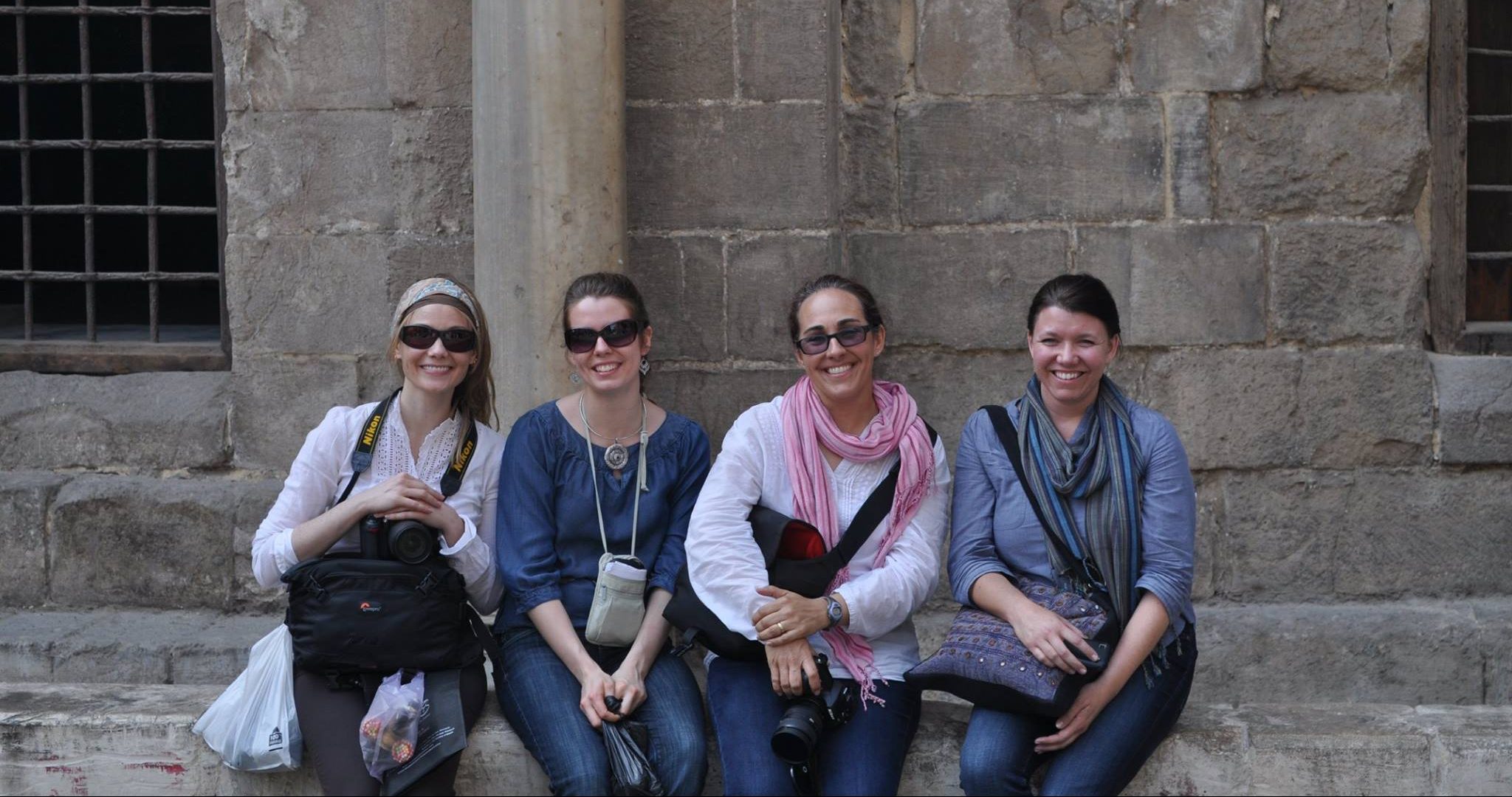
When a friend of mine had a baby and invited me over to see the new little one for the first time, I was both delighted and anxious. What do you bring a new Egyptian mother? Without access to the baby aisle at Walmart, I was at a loss. At the last moment I grabbed a box of dates on my way to her home.

She thanked me for the dates and graciously opened the box to supplement the goodies she had already prepared. I sampled one of my lackluster dates and wasn’t impressed. But then, who am I to judge? I’m an American, after all. I literally never ate dates in America. I did buy packages of them from time to time to blend up into nut and date bars, but was positively never tempted to just pop one into my mouth. That first date I sampled at my friend’s house confirmed my previous judgment: dates just simply aren’t worth the time or the calories.

(Crispy dates? Better believe it!)
And then my lovely friend, ever the generous hostess, pulled out her own box of dates. From Saudi Arabia, she said, and insisted I try one.
It is not hyperbole to say that the world shifted beneath my feet. My life changed forever. That day was the beginning of my love affair with Saudi Arabian dates. Who knew that a date could be an explosion of butter and honey in your mouth? It was all I could do to keep myself from reaching for just one more. I fairly rolled out of her apartment a couple of hours later.

(Saudi Arabian dates, AKA ambrosia)
I’m still no date expert, but I’ve learned a few things about them in my years in Egypt. For one, I’ve learned that dates hold a strong position in Egyptian culture, particularly as a Ramadan tradition. Maybe you’ve been standing on a street corner or riding the metro during Ramadan during the sunset call to prayer. If so, it is likely that someone has offered you a cup of juice or a date to break your fast. This is because the prophet Muhammed taught that one’s fast should be broken slowly with dates. Only after you’ve had a drink and a date should you tuck into the platter of chicken and rice.

I’ve learned that it is common for an Egyptian family to buy anywhere from 5-20 kilos of dates before the start of Ramadan, to eat and to share with those in need. I’ve been in Siwa, for example, and have witnessed Egyptian tourists stocking up on dates prior to Ramadan.

(No idea which dates to buy? Attend the Cairo Date Festival and sample them all!)
I’ve learned that many people enjoy reconstituting dry dates in milk and then drinking the sweetened milk. I was so perplexed about these dry dates during my first Ramadan in Egypt. I could see baskets of them for sale in the souq, but was too embarrassed to ask how one could possibly eat the seemingly inedible pellets. Now I get it. Go ahead – try it!

I’ve learned that there are varieties of dates that are picked and eaten while still crunchy. These red Zaghloul dates took a while to grow on me. For one, they have a weirdly woody texture. But also they are, well, crunchy. Aren’t dates supposed to be squishy? Now, however, I find them oddly addicting.

(Red Zaghloul and Yellow Barhi dates are crispy, sweet, and full of fiber)
I’ve watched young and old men alike monkey up impressively tall date palms with nothing but their bare hands and feet. These daredevils risk life and limb to prune, pollinate, and harvest their precious dates.

(Get up close and personal with dates with Camilla in Siwa)
So next time you are offered a date as a snack, h’ordeuvre, side dish, or dessert, examine it. Ask your host where she got her dates. There is bound to be a story, so settle down – close to the bowl of dates – and listen. And if it is a bowl of Saudi Arabian dates, please call me. I’ll meet you there!



